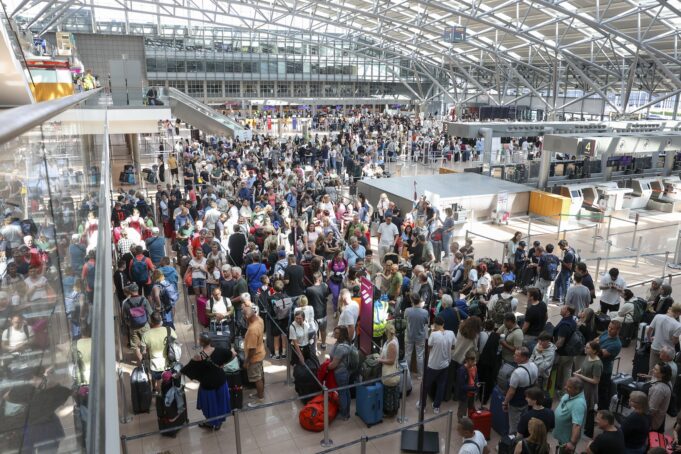by Starla Muhammad and Charlene Muhammad
The Final Call
@TheFinalCall
Many questions are being asked as millions of people around the world grapple with the reality of what is being called the largest global tech / IT tech outage in history. Technology experts, economists, world systems and governments are still working to get their systems online while others question what’s next after the July 18 IT global shutdown.
Some cyber experts have said there is no quick fix and any solution will take more than hours.
Microsoft blamed it on a faulty system update by the independent cybersecurity company, CrowdStrike. CrowdStrike issued an apology and explained that the outage was caused by a defect found in a Falcon content update for Windows hosts. “Mac and Linux hosts are not impacted. This was not a cyberattack,” read a statement posted on CrowdStrike’s blog by George Kurtz, founder and CEO.
However, the impact and fallout were felt globally and left industries reeling. Thousands of flights were canceled and tens of thousands were delayed, leading to long lines at airports in the U.S., Europe, Asia and Latin America. Airlines lost access to check-in and booking services during the heart of the summer travel season, reported the Associated Press and multiple media outlets. Hospitals canceled or postponed surgeries, and reportedly across the country some operations in 911 call centers were disrupted. The shutdown upended government services, banking and other businesses.
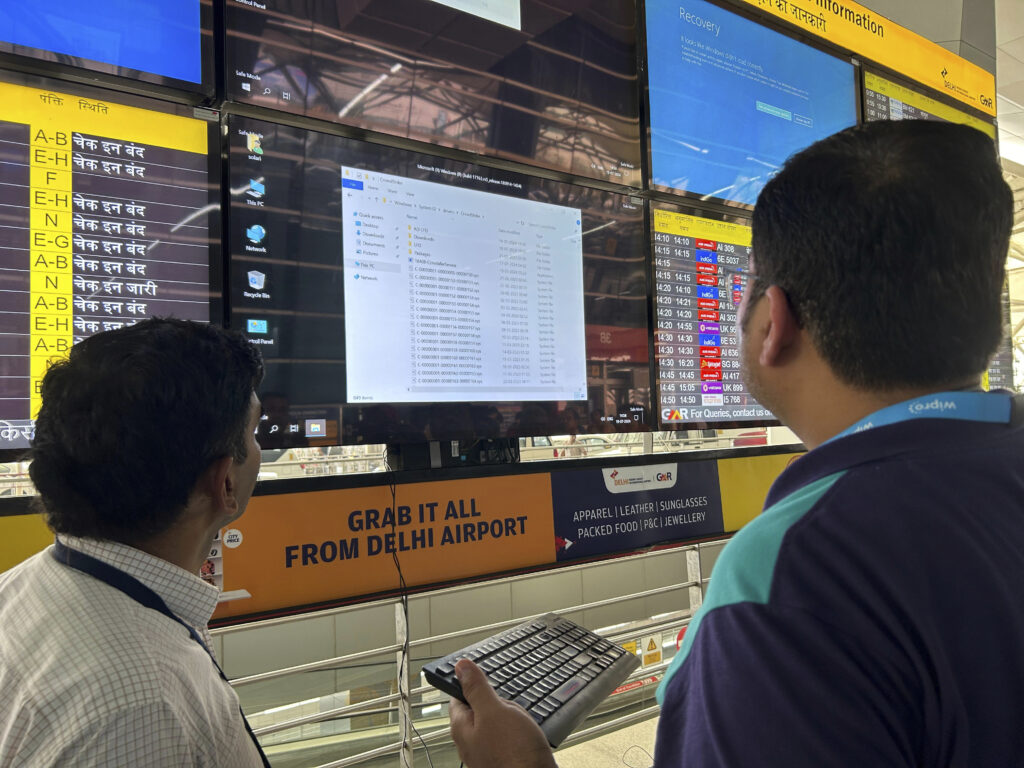
The reliance and dependence on technology such as computers and the software required to manage, run and maintain these systems is part of everyday life for billions around the world. But when it fails, the fallout can be catastrophic. And according to some experts, it is not a question of “if” a failure of this magnitude will happen again, but “when” it will happen.
The Most Honorable Elijah Muhammad and the Honorable Minister Louis Farrakhan have taught for decades, the critical importance of preparation for inevitable disasters that will strike the U.S. and the world.
Catastrophic results
According to Nick Hyatt, director of threat intelligence at security firm Blackpoint Cyber, it was the content update felt around the world. “One mistake has had catastrophic results. This is a great example of how closely tied to IT our modern society is—from coffee shops to hospitals to airports, a mistake like this has massive ramifications,” Mr. Hyatt told CNBC News.
As of July 20, disruptions were ongoing as employees of airlines, banks, hospitals and other crucial businesses worked to catch up from the backlog caused by the historic technological meltdown that affected 8.5 million Windows devices worldwide, according to an online NPR report dated July 20.
Airlines reported over 33,000 total delays just on July 20, over 8,000 of those within, into, or out of the United States according to FlightAware, the real-time flight tracking data sight. In addition, it reported 2,725 cancellations that same day, and 2,016 cancellations within, into or out of the U.S.
“All of these systems are running the same software. … We’ve made all of these tools so widespread that when things inevitably go wrong—and they will, as we’ve seen—they go wrong at a huge scale,” said James Bore, cyber, information and technology security expert to AP.
Timothy Muhammad is an information technology specialist and a part of the Nation of Islam’s Ministry of Information. He explained that many large institutions subscribe to cybersecurity services for software and hardware. The cybersecurity companies that produce the software work 24/7 to try and get ahead of any threats. However, in some cases when a new protection or “patch” is released to combat a threat, that protection may once in a while have a “bug” or “glitch.”
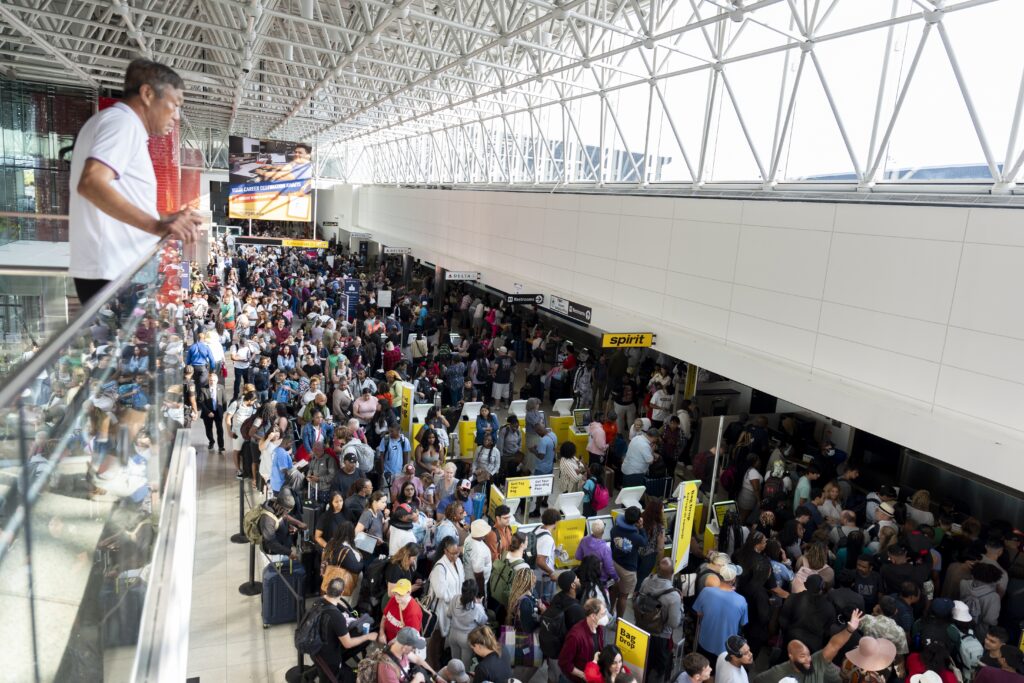
“Now those ‘bugs’ are more often than people know about. It’s just that this particular ‘bug’ was catastrophic because this ‘bug’ literally rendered your operating systems inoperable. Some of the other ‘bugs’ that they release may create a glitch here or an issue there; nobody knows about it, they release a patch, it fixes the issue that nobody was really paying attention to, and we move along,” Timothy Muhammad told The Final Call.

“It (system) crashed, you reboot the computer and it still crashed. So, you’re talking about airlines. Most of the digital signage you see in the airlines where you go and you see all your planes and make sure your plane is on time, that digital signage is running on Microsoft Windows. Those workstations that they’re using to check you in to get your ticket, that’s running on Microsoft Windows. The servers are running on Microsoft Windows. So, all of these systems that are running this CrowdStrike endpoint protection software that run on Microsoft Windows got hit. Microsoft Windows is on 90 percent of the world’s desktops and maybe 20 percent of the world’s servers. So, you can only imagine how big that type of hit would affect the world.”
He told The Final Call that as a technology professional, he was not surprised nor did he find what happened strange since it has happened multiple times before on small levels.
Since in their homes the average person is not using CrowdStrike for their cybersecurity protection on their personal computers, they were not severely impacted, but outside of their homes as consumers, many people and companies were deeply affected, explained Timothy Muhammad.
“Now here’s the thing. This is a sign of what’s to come because there are going to be larger scale outages and those outages that will happen at some point are going to directly affect you, me. If you have all of your photos and information on cloud systems—Apple, Google—or whatever else, and you don’t have a personal backup of your own data, one of these days we’re going to wake up to a massive loss of data. It’s going to happen. It’s not if, it’s when.”

Divine Guidance and proper preparation
America and the world that it helped to develop technologically, post-World War II is unraveling and is steadily moving, not toward a so-called democracy, but toward an oligarchy, where power and wealth are concentrated amongst the 10 percent, explained Nation of Islam Southwest Regional Student Minister Abdul Haleem Muhammad of Mosque No. 45 in Houston. He holds a Ph.D in Urban Planning and Environmental Policy.
Society is at the mercy of this new oligarchy: the technology sector’s wealthy elite, which has replaced the old dominance of smokestack, fossil fuel, and timber industries, he said, reflecting on the Honorable Minister Louis Farrakhan Feb. 23, 2020, Saviours’ Day address, “The Unraveling of a Great Nation.”
“We’re increasingly finding ourselves vulnerable to artificial intelligence, software glitches, hardware failures and other technological malfunctions that are ill-effecting not just individual sectors of the economy, but literally the whole world,” stated Student Min. Muhammad.
“Because we have ignored the divine warning of the Most Honorable Elijah Muhammad found in ‘The Fall of America,’ and the merciful extension of those warnings in the person of the Honorable Minister Louis Farrakhan, it is unfortunate that there is no protection when there is disobedience and disregard for Allah’s Mercy in His divine warnings,” he added.
“I would say that it is as the Honorable Elijah Muhammad put in the last chapter of ‘The Fall of America,’ that the worst is yet to come. You had 911 systems to go down, airports, many essential services, and hospitals to go down. Without redundancy in the system, without building a backup plan to the backup plan, we’re finding that we are serving technology instead of technology serving us,” he added.
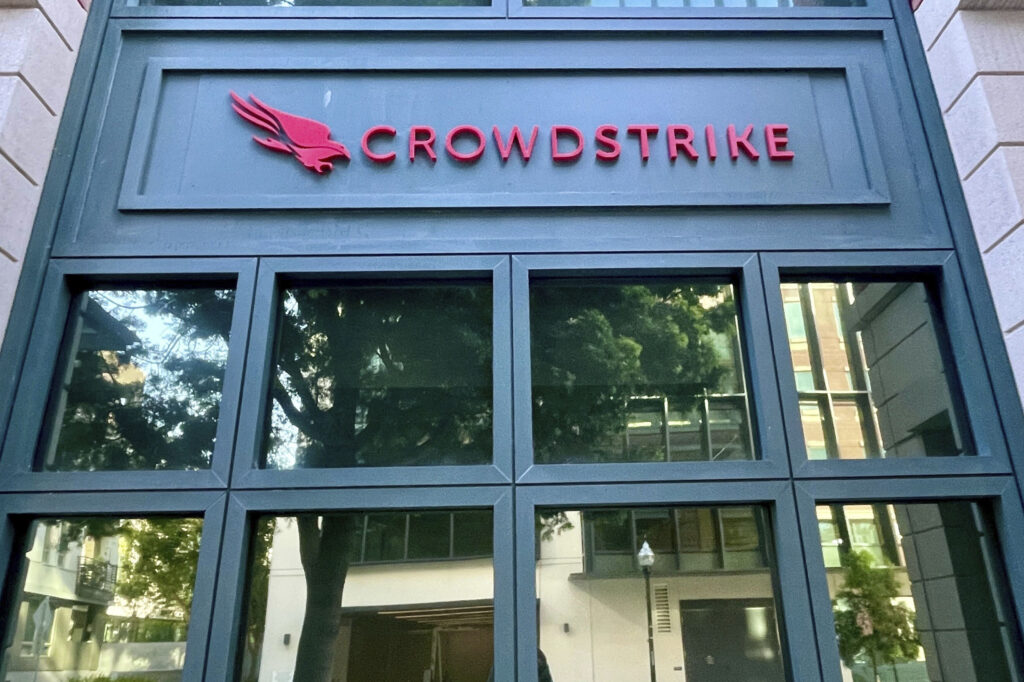
For decades, people have prepared for global weather disasters across the board. Federal emergency management systems, local and regional farmers, banking, and transportation have been left helpless at times, as whole cities have suffered under extreme and unprecedented rain, hail, snow, earthquakes, fires, and as of late, heat domes striking the U.S. and abroad. But few were prepared for this digital day of chaos or the impact of the global technology shutdown.
The solution, according to Anissa Muhammad, who holds a Master’s of Public Health and Social Work (MPH/MS) in Los Angeles, is separation and a return to the Guidance of the Most Honorable Elijah Muhammad under the leadership of the Honorable Minister Louis Farrakhan.
During parts of the tech shutdown businesses used paper and pen or accepted cash only while credit and debit accessibility was unavailable.
“We can galvanize our communities, unite and collaborate amongst ourselves within our mosques, churches and other community-based organizations, and try to figure out the best way to prevent a digital deficit, in the event something of this magnitude were to happen again,” said Anissa Muhammad, who is also a student in the ministry and serves as the Nation of Islam’s Western Region Headquarters’ coordinator for the Ministry of Health..
She pointed out there was little digital technology in the 50s, 60s and 70s and that there were no Apple watches, iPhones, or internet. “Yet we were able to continue to stay in constant contact with one another and able to communicate,” she stated.
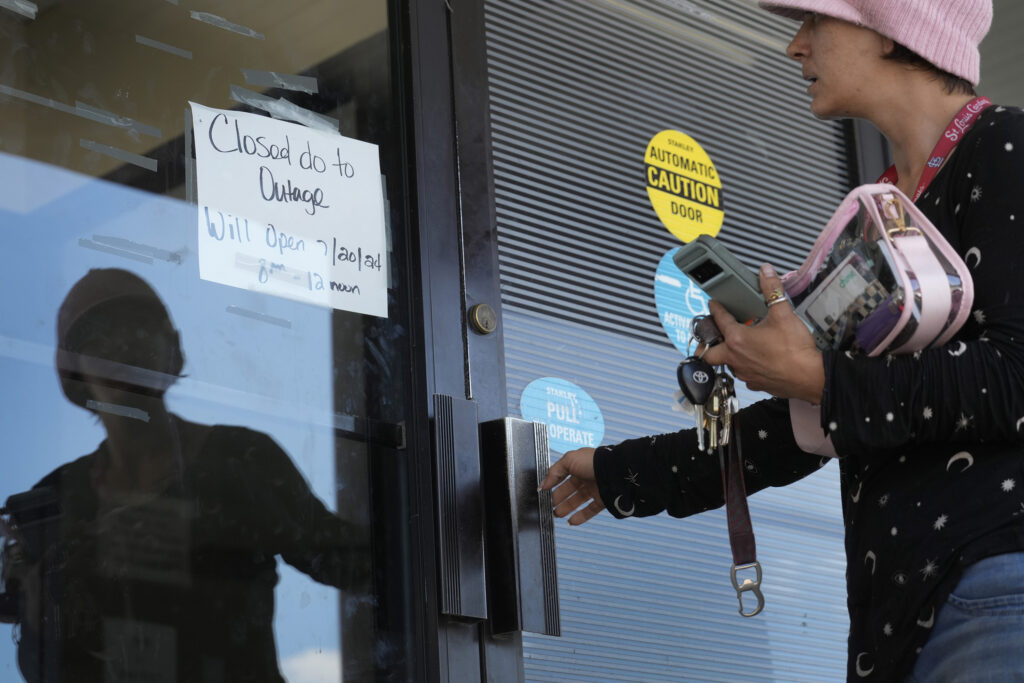
She recommended having ham (amateur 2-way) radios to stay in contact in the event of no cell service but, said it would be best to heed the guidance and warning of the Honorable Elijah Muhammad through the Honorable Minister Louis Farrakhan.
“Just like during the (COVID-19) pandemic, you had to have money in your home, paper goods, food and water, electricity, different types of power and light so that you can help yourself in the event the lights take days and weeks to come back on,” she said.
Timothy Muhammad stated that the overreliance on tech and devices that work daily can make the average person be “lulled to sleep,” because most people do not understand that technology is also fragile.
“The real value of life is the Earth itself. It’s something physical. We live in a ‘virtual’ reality when it comes to these devices and if you put the majority of the valuable things that you hold dear in a virtual world, then you can lose it in an instant because it’s ‘virtual,” he said.
“There is a project manager at CrowdStrike who is literally the person who approved that software (update) to be released. It can be traced back to the responsibility of one person who said, ‘Okay, we’ve got enough testing on this. Let it go.’ And that one person who said, go ahead and release it … a gatekeeper to a global outage. That’s fragile. Technology is not infallible, it’s very fragile. So, anything that’s important that you have on the computers, devices in the cloud, etc, make sure you have a backup on something physical that you can go on so that when the internet goes down, systems crash or there is a major cyberattack with mass deletion of data that you’ve got all your photos, videos and documents on something physical.”












